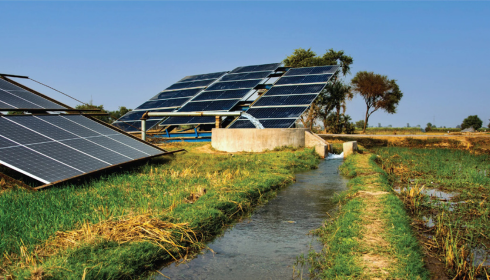
In recent years, the adoption of renewable energy solutions has witnessed remarkable growth, and among these, solar water heating system technology has emerged as a highly efficient and eco-friendly method of harnessing solar energy. With increasing concerns over rising electricity costs and environmental sustainability, both households and industries are now looking toward solar-powered solutions to meet their energy needs.
Understanding Solar Water Heating Systems
A solar water heating system is designed to capture sunlight and convert it into heat, which is then used to warm water for domestic or industrial purposes. The system generally comprises solar collectors, a storage tank, and a circulation system. Solar collectors absorb sunlight and transfer the heat to water, while storage tanks ensure a continuous supply even during cloudy days or nighttime.
This system is not only environmentally friendly but also cost-effective in the long run. By reducing dependency on conventional electricity or fossil fuels, it minimizes greenhouse gas emissions and contributes to a cleaner, greener planet. For households, installing a solar water heating system can lead to substantial savings on monthly energy bills, especially in regions with abundant sunlight.
Solar Industrial Applications
Beyond residential use, solar technology has found significant applications in industrial sectors. Solar industrial solutions are transforming the way factories and commercial establishments manage their energy consumption. Industries with high hot water demands, such as food processing, textiles, and chemical manufacturing, can greatly benefit from solar water heating systems.
Implementing solar industrial heating solutions not only reduces operational costs but also enhances sustainability credentials. Companies increasingly prioritize green initiatives, and adopting solar technology positions them as environmentally responsible businesses. Moreover, government incentives and subsidies for renewable energy projects further encourage industrial adoption, making solar water heating an economically viable option.
Advantages of Solar Water Heating Systems
- Energy Efficiency: Solar water heating systems can meet up to 70-80% of hot water needs in residential setups and even higher percentages in industrial applications.
- Cost Savings: By relying on free solar energy, users can significantly reduce electricity or fuel costs. Over time, the system pays for itself and continues to provide savings for decades.
- Environmental Impact: Utilizing solar energy reduces reliance on fossil fuels, cutting carbon footprints and contributing to climate change mitigation.
- Low Maintenance: Solar water heating systems are generally durable, requiring minimal maintenance over their lifespan, which can exceed 20 years.
- Government Incentives: Many governments offer tax credits, rebates, or other financial incentives to promote the adoption of solar technology, making installation more affordable.
Choosing the Right System
Selecting an appropriate solar water heating system depends on several factors, including geographic location, sunlight availability, water demand, and budget. For industrial purposes, large-scale systems with multiple collectors and high-capacity storage tanks are recommended. On the other hand, residential setups may suffice with compact rooftop installations.
It is also important to choose a system from reputable manufacturers that comply with quality standards and provide efficient energy conversion. Professional installation ensures optimal performance and longevity of the system.
Conclusion
The integration of Solar industrial technology in both residential and industrial sectors marks a significant step toward energy sustainability. By harnessing the abundant power of the sun, individuals and industries can enjoy reduced energy costs, decreased environmental impact, and a reliable supply of hot water.
As the demand for renewable ene